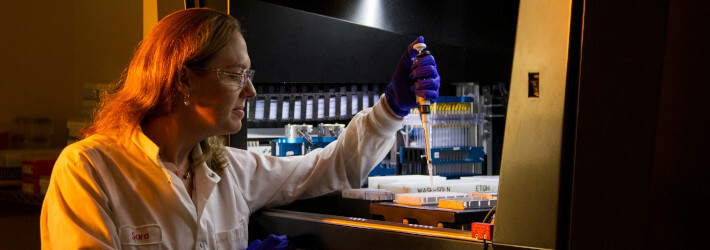On June 13, 2024, the PTAB granted institution of IPR2024-00240 that Merck Sharp & Dohme, LLC (“Merck”) filed in November 2023 challenging claims 1-42 of The Johns Hopkins University’s (“JHU”) U.S. Patent No. 11,591,393 (“the ’393 patent”) on anticipation and obviousness (35 U.S.C. §§ 102 and 103) grounds. The ’393 patent is directed to treating cancer patients with high mutational burdens, such as microsatellite instable (MSI) cancer, by using anti-PD-1 antibodies, which includes pembrolizumab, sold by Merck under the trade name Keytruda®.
Previously, Merck filed a complaint in November 2022 against JHU in the District of Maryland (1:22-cv-03059 (D. Md.)) alleging breach of contract, promissory estoppel, and non-infringement of the patent at issue in this IPR as well as JHU’s U.S. Patent Nos. 10,934,356; 11,325,974; 11,325,975; 11,339,219; 11,629,187; 11,643,462 and 11,649,287 (previously reported Merck Files Four IPRs Challenging The Johns Hopkins University Pembrolizumab Patents). JHU counterclaimed for infringement of the above-mentioned JHU patents along with the ’393 patent. Merck has filed IPRs on the other patents at issue in this lawsuit, which are awaiting institution decisions.
Independent claim 1 of the ’393 patent challenged in IPR2024-00240 recites:
A method of treating microsatellite instability high or DNA mismatch repair deficient colorectal cancer in a human patient, the method comprising:
testing, or having tested, a biological sample obtained from a patient having colorectal cancer, thereby determining that the patient’s colorectal cancer is microsatellite instability high or mismatch repair deficient; and
in response to determining that the colorectal cancer is microsatellite instability high or DNA mismatch repair deficient, treating the patient with a therapeutically effective amount of pembrolizumab.
The other independent claim also recites the same steps of “testing” and “in response to determining that the colorectal cancer is microsatellite instability high or DNA mismatch repair deficient, treating . . . .”
Petitioner used the prior art “MSI-H Study Record” in all of its asserted grounds. This prior art was the study record for a clinical trial sponsored by Merck and JHU using Keytruda® in MSI positive cancer patients, including those with MSI positive colon cancer.
With respect to the anticipation ground, the PTAB found that Petitioner had sufficiently shown that there is a reasonable likelihood that the MSI-H Study Record teaches treating colorectal cancer patients after they were determined to be microsatellite instability high (“MSI-H”) or DNA mismatch repair deficient with pembrolizumab. Patent Owner argued that “testing and determining that a patient is MSI-H after enrollment in a study in which pembrolizumab is to be administered is not within the scope of the claim step ‘in response to determining that the colorectal cancer is microsatellite instability high or DNA mismatch repair deficient, treating the patient with a therapeutically effective amount of pembrolizumab.’” The PTAB disagreed with Patent Owner’s argument, finding that the claim step was to be interpreted as “the treatment of colorectal cancer patients after they have been determined to be microsatellite instability high or DNA mismatch repair deficient,” and therefore, the MSI-H Study Record anticipates claims 1-42 of the ’393 patent.
With respect to the obviousness ground, which Petitioner presented as an alternative to the anticipation ground, Petitioner argued that “the MSI-H Study Record itself would have rendered it obvious to test patients for MSI-H because one of ordinary skill in the art would have been motivated to and would have expected success in carrying out the methods taught in the MSI-H Study Record.” Petitioner also cited Pernot as teaching that “colorectal cancer patients are good candidates for immunotherapy, such as the PD-1 inhibitor pembrolizumab, to address the expectation of success in the method of claim 1,” and as such, one of ordinary skill in the art would have been motivated by Pernot to obtain the results of the MSI-H Study Record. The PTAB determined that sufficient evidence existed to institute on the anticipation ground, and therefore, to institute on the obviousness ground since “anticipation is the epitome of obviousness.” For the remaining obviousness grounds, the PTAB found that Petitioner would prevail with respect to at least one claim challenged in the Petition.
In response to Patent Owner’s argument to exercise discretion to deny institution under 35 U.S.C. § 325(d), the PTAB found that even if the MSI-H Study Record had been fully considered during prosecution of the underlying application of the ’393 patent, institution should not be denied because, inter alia, “the Examiner erred in allowing the claims over the MSI-H Study.” Finally, the PTAB disagreed with Patent Owner’s argument that due to the parallel district court litigation timing, the PTAB should exercise discretion to deny institution. Based on its analysis of the Fintiv factors, the PTAB found that the fact that the trial date was likely to be after issuance of a final written decision, the limited investment of the parties and the Court in the litigation, and the compelling merits of Petitioner’s challenge weighed in favor of the PTAB instituting the IPR.
Keytruda® was the world’s top selling drug in 2023, with over $25B USD in world-wide sales.
We continue to monitor this Keytruda® IPR and will provide updates as they become available.
For more information about these and other biosimilar and biologic drug patent disputes, visit BiologicsHQ.
_____________________________________________________
The authors would like to thank April Breyer Menon for her contributions to this article.


